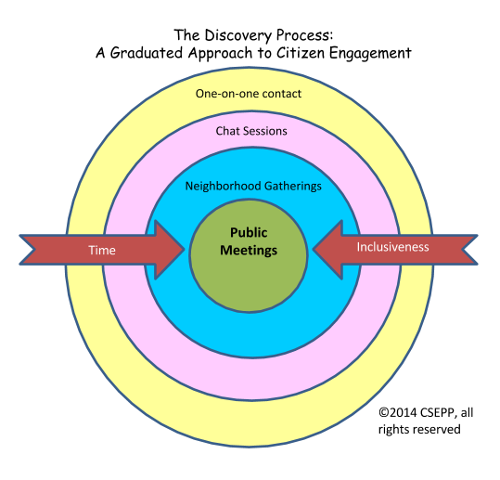
Citizen involvement in planning activities is part of the democratic tradition in the U.S. and yet the methods to accomplish meaningful participation are generally not effective. This is because:
- A reliance on meetings means that the 98% of people that do not go to meetings are not included. Meetings are not effective in sustaining citizen action.Formal meetings are often seen as a controlling measure on the part of authorities who have “made up their minds.” Public meetings are often “captured” by organized groups who are advocating their agenda, leaving out the interests of everyday people.
- Planning processes are often technically-driven and cultural elements are not identified.
Culturally based, citizen-driven planning
CSEPP looks for the ways in which people in their communities already organize and works within those community systems. We find that if a planning process is driven by the Discovery Process in which the community has first been described, we can expect the following qualities to emerge:
- Planning teams are alerted to the citizen issues, as well as the social and economic trends, affecting a community. They can begin to incorporate this information into the formal process.
- CSEPP has made good use of “chat sessions” in which a member of an informal network calls friends and neighbors over for an informal gathering in a home, church, or other comfortable setting. Because these are natural settings in people’s own environment, the rhetoric level tends to be reduced and frank discussions can occur.
- Organized groups have opportunities to participate and the venues available for other people to participate has been greatly expanded. Thus, dominance by the few does not occur.
- Cultural elements, those aspects of community life related to caretaking, survival and cultural values, are injected into the planning process and offer a necessary balance to the technical considerations.

